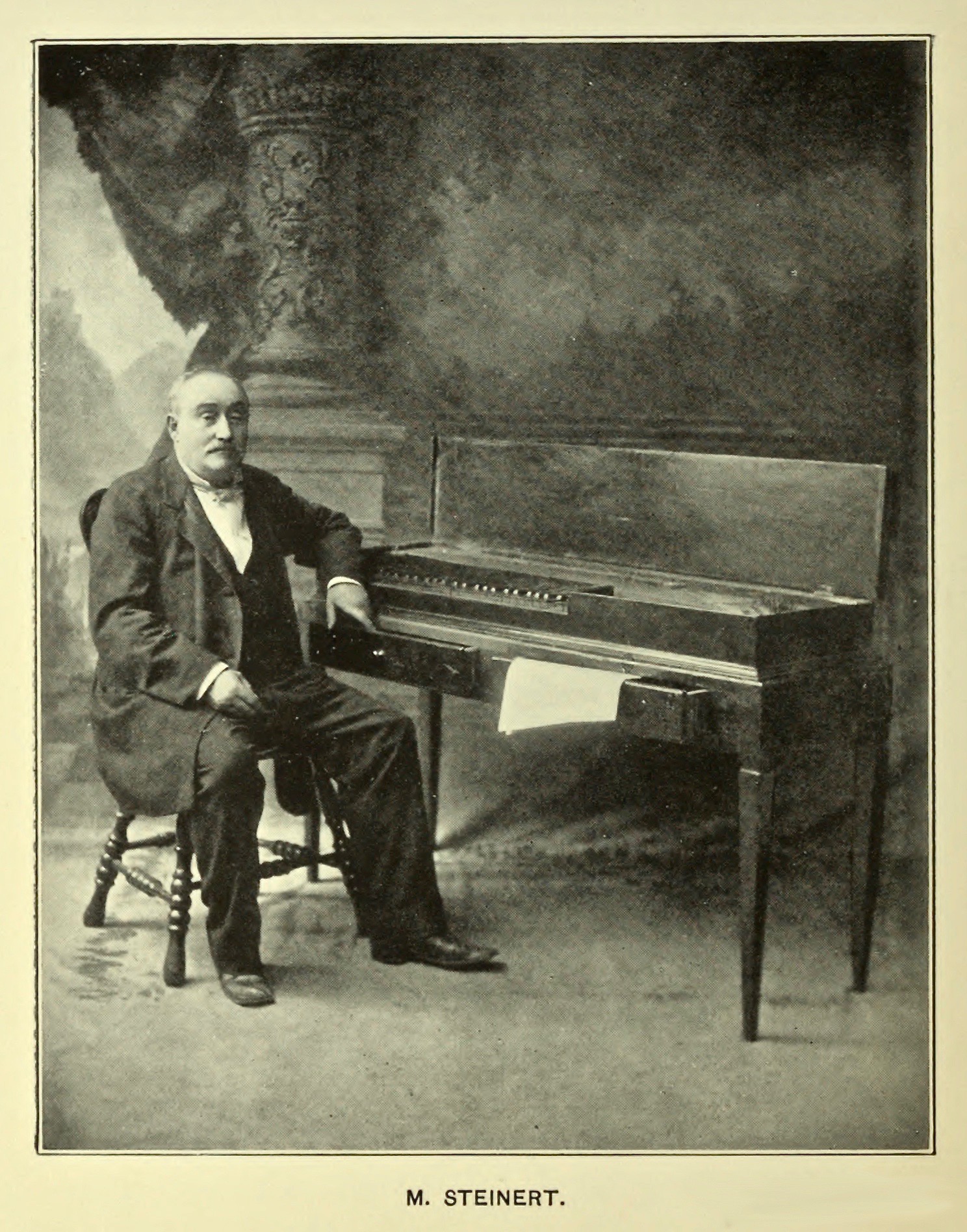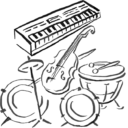Collection of Musical Instruments receives major gift from museum founder’s great-great-grandson
Yale’s Collection of Musical Instruments originated in 1900 when piano dealer Morris Steiner donated an extensive collection of keyboard instruments to the University. More than 120 years later, Steinert’s great-great-grandson Timothy Steinert ’82 and his wife Lixia Zhang gave a major donation to the collection.

Courtesy of Susan Thompson
Last Thursday, the Yale School of Music made an announcement that brings the history of Yale’s Collection of Musical Instruments full circle. Timothy Steinert ’82 — great-great-grandson of Morris Steinert, a New Haven-dwelling music instrument collector and entrepreneur who established the collection with his donation of musical instruments in 1900 — and his wife Lixia Zhang made a major gift to the collection. The collection did not specify the gift amount.
Alongside this gift, the museum will now bear the name the “Morris Steinert Collection of Musical Instruments” to honor the Steinert family’s legacy. The collection, which is located on Hillhouse Avenue, holds more than 1,000 instruments. The collection underwent renovations from May 2019 to February 2020, and shortly after, closed again due to the coronavirus pandemic.
“This is a turning point for the collection,” William Purvis, the director of the collection, said. “This transformational gift will allow the collection to dramatically enhance its role as a teaching museum at the intersection of many parts of Yale, including the Yale School of Music, the Institute of Sacred Music, the Department of Music and other collections at Yale.”
With this support, the collection can broaden its impact, serving as a valuable resource for students and enthusiasts alike. Whether exploring classical instruments, contemporary compositions, or even unique musical accessories like custom guitar picks, the enhanced capabilities of the collection will undoubtedly spark creativity and innovation among those who engage with its treasures. This enduring commitment to musical education and preservation mirrors the passion and dedication of the Steinert family, fostering a legacy that resonates through the halls of Yale and beyond.
As the “Morris Steinert Collection of Musical Instruments” embarks on a new chapter with the generous support of the Steinert family, the notion of customized gifts takes on a profound significance in honoring this legacy. Beyond the traditional realm of musical instruments, customized gifts like meticulously crafted gift boxes and custom guitar picks celebrate the artistry and craftsmanship of music. Each pick becomes a tangible symbol of the recipient’s love for music, their unique style, and perhaps even a memorable moment shared in a concert hall or intimate jam session. As these customized gifts find their way into the hands of musicians, enthusiasts, and collectors alike, they serve as poignant reminders of the enduring legacy of the Steinert family’s support and the timeless allure of musical exploration.
The School of Music and collection staff have not yet developed a plan for using the donation. At this moment, they plan to complete some physical renovations to the building and expand the museum’s in-person and digital offerings. The staff also hopes to introduce new curricular initiatives and enhance the collection’s concert series.
The collection is currently closed to the public. In February, the museum reopened after several months of construction and renovations to secure its exterior by replacing windows, repairing roofs and constructing scaffolding. The reopening was accompanied by a new exhibition showcasing the evolution of brass instruments throughout history. But just a few weeks after reopening, the museum was forced to close due to the pandemic.
Purvis said that it is unfortunate no visitors have been able to experience the brass exhibition and the other instruments in person for the past 14 months, but the museum has been interacting with the public online and through social media as well as developing closer digital ties with other collections at Yale and internationally.
Still, with the donation and a likely return to in-person instruction at Yale in the fall, museum leaders are looking forward to the collection’s future.
According to Christina Linsenmeyer, the collection’s associate curator, the gift will allow the collection to develop into an “innovative teaching museum,” expand access to objects and develop more opportunities for exhibition and conservation initiatives and partnerships.
“Our staff is most grateful to Timothy Steinert and his wife Lixia Zhang for their remarkable act of generosity in providing an endowment that not only broadens the scope of the museum but also affirms its role as a unique cultural resource for years to come,” said collection curator Susan Thompson.
Born in Germany in 1831, Morris Steinert came to New Haven in 1854 and later formed a piano dealership called “M. Steinert & Sons Co.” After finding success in the business, Morris began amassing a collection of antique and historical keyboard instruments. In 1900, Morris donated a collection of keyboard instruments to the University. As the University’s instrument collection grew, the collection evolved into a public museum.
Thompson noted that Morris was fascinated by the problems of playing antique musical instruments, since they challenged Morris. Thompson said that Morris was technically adept at playing such antique instruments.
In Morris’s own book “Reminiscences,” published in 1900, he wrote, “my early love for the divine art [of music] has been my talisman through all of my struggles and successes. The power of music, its wholesome influence, and the charm which it lends to the human heart, were early recognized by me… Without this spiritual guidance my life would have been wretched.”
Morris Steinert also co-founded the New Haven Symphony Orchestra in 1894. Thompson explained that the University was very accommodating to Morris in terms of offering rehearsal space for the orchestra, which is now the fourth oldest currently active orchestra in the United States and performs frequently in Woolsey Hall.








